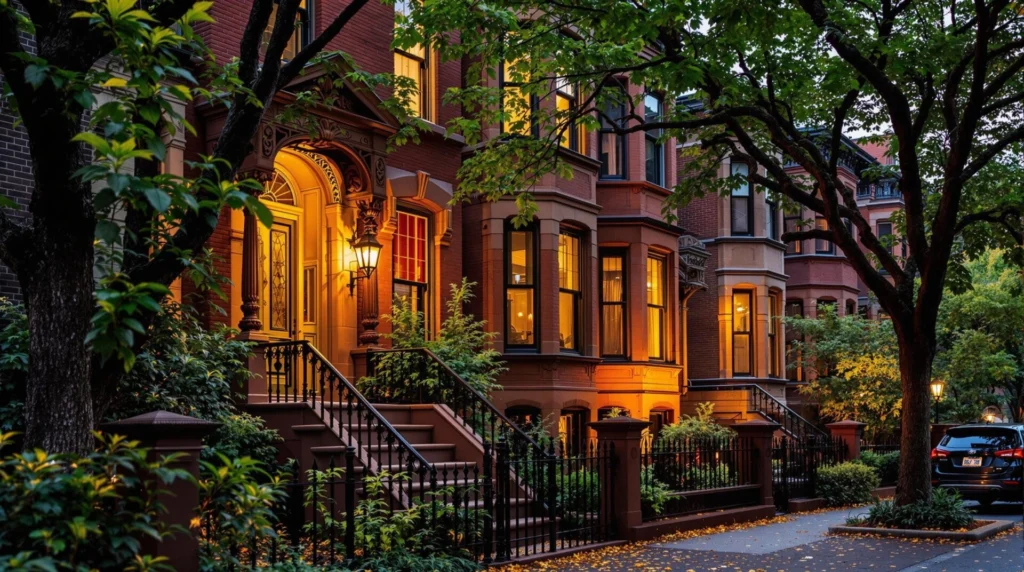Key Takeaways
- Investing in off-grid properties promotes sustainability by reducing reliance on public utilities through renewable energy sources, efficient waste management, and water conservation.
- Off-grid living offers long-term financial benefits, including lower utility costs and energy independence, while providing a self-sufficient lifestyle.
- Urban off-grid living is becoming more feasible due to advanced technology in solar panels, water management, and energy storage solutions, allowing city dwellers to incorporate sustainable practices into their daily lives.
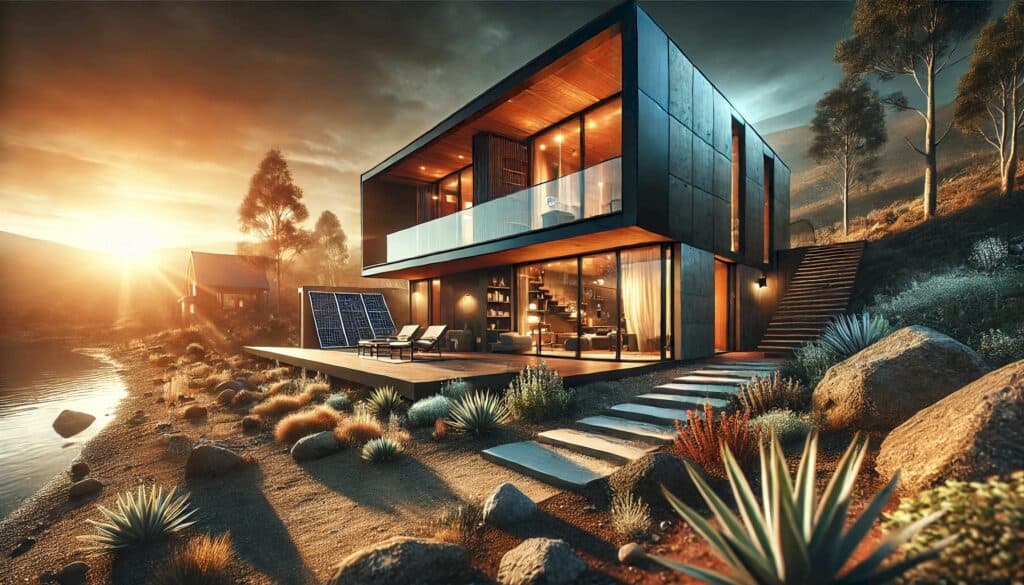
Rise of Sustainable, Off-Grid Transformation
The rise of off-grid living is transforming how people approach sustainability and independence.
Off-grid living is a lifestyle that operates without relying on public utilities, such as power grids, water supplies, and waste management systems.
This form of living is gaining traction due to growing concerns over climate change, rising utility costs, and the desire for more self-sufficient homes.
Investing in off-grid properties appeals to eco-conscious buyers who want to minimize their environmental impact while enjoying the benefits of long-term financial savings.
This trend aligns perfectly with the global movement toward greener living solutions.
Understanding Off-Grid Living: What Does It Entail?
Off-grid living means relying entirely on autonomous systems to manage electricity, water, and waste.
This lifestyle requires essential infrastructures like solar panels for energy generation, rainwater harvesting systems for water supply, and waste treatment solutions such as composting toilets or septic systems.
In contrast, off-grid homes differ significantly from traditional setups, where public utilities handle these services.
However, modern technology is making off-grid living more feasible than ever.
Solar power systems, efficient water collection setups, and off-grid-friendly home designs allow for a comfortable, eco-friendly lifestyle without sacrificing modern amenities.

Benefits of Investing in Off-Grid Properties
One of the primary benefits of off-grid properties is energy independence.
Solar power, wind turbines, and other renewable energy sources allow property owners to reduce or eliminate their reliance on the grid, resulting in lower energy costs.
In addition, these systems provide long-term savings, helping homeowners avoid the increasing costs of public utilities.
Another key point is the sustainability of off-grid homes.
They contribute to reducing carbon footprints by using renewable energy, conserving water, and managing waste efficiently.
Moreover, off-grid properties are more resilient in power outral disasters, as they are not dependent on centralized systems.
Self-sufficiency is a significant appeal.
Growing your food, harnessing real resources, and managing household needs independently fosters a more sustainable lifestyle.
RELATED CONTENT
In short, the long-term benefits of off-grid living extend beyond finances, offering a more secure and environmentally responsible way of life.
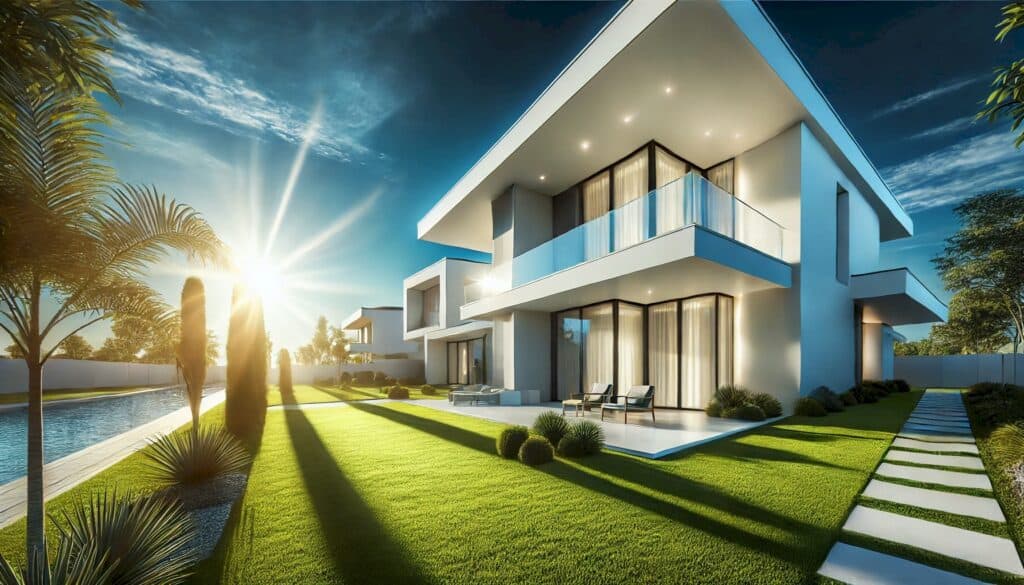
Off-Grid Living in Urban Areas: A Growing Possibility
While off-grid living is typically associated with rural or remote areas, technological advancements make living off-grid in the city increasingly feasible.
Urban dwellers can adopt off-grid practices by incorporating solar panels, rooftop gardens, and rainwater harvesting systems into their homes.
High-efficiency solar panels, compact water filtration systems, and innovative waste management solutions enable urban households to reduce their reliance on municipal services without sacrificing convenience.
Besides, energy storage technologies like home batteries allow city residents to store and manage their energy more effectively.
In short, the rise of smart city infrastructure and green technologies is making urban off-grid living a reality for more people.
Key Factors to Consider Before Buying Off-Grid Property
Before considering off-grid properties, several key factors should be assessed.
Location is important, as many are in remote areas.
While this offers privacy and a connection to nature, accessibility to services like grocery stores or medical care can be limited.
The initial costs of setting up an off-grid property can be high.
Solar panels, water filtration systems, septic tanks, and other infrastructure require significant upfront investment.
However, these expenses are often offset by long-term savings on utilities.
Equally important are local regulations and zoning laws.
Some areas have restrictions on off-grid living, especially regarding water use and waste management.
Research local building codes to ensure your property is compliant.
Maintenance is another factor; owners must be prepared to manage and repair their systems regularly.
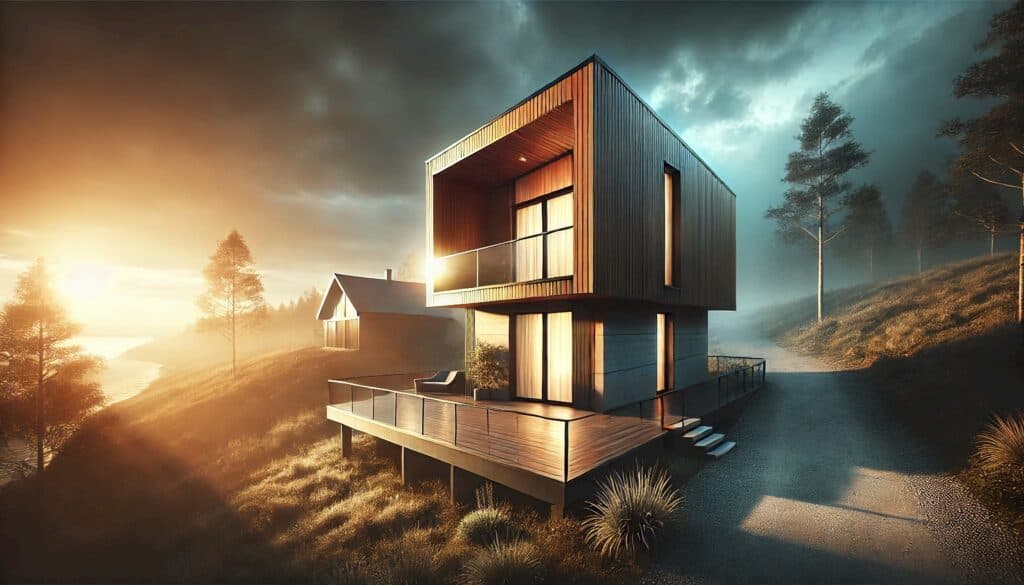
Essential Systems for Off-Grid Homes: What You Need
Building an off-grid home requires several essential systems to maintain a comfortable and sustainable lifestyle.
Energy generation is the most important aspect, typically managed through solar, wind, or hybrid energy systems.
Solar panels are the most popular option, providing a clean, renewable energy source.
Water supply is another critical component. Many off-grid homes rely on wells or rainwater harvesting systems for fresh water.
Rainwater collection, combined with advanced filtration systems, ensures a consistent supply even in remote areas.
Waste management is also necessary for off-grid living.
Options include composting toilets and septic systems, which allow homeowners to manage waste independently. In addition, heating and cooling systems must be designed with energy efficiency in mind.
Passive solar design, wood stoves, or energy-efficient insulation help maintain a comfortable temperature year-round.
Not to mention, these systems require a one-time setup cost but offer long-term sustainability and energy independence.
Environmental Impact: How Off-Grid Living Contributes to Sustainability
Off-grid living significantly reduces the environmental impact of a household.
Off-grid homes produce fewer greenhouse gas emissions by relying on renewable energy sources like solar or wind power.
Decreased reliance on fossil fuels helps combat climate change and preserve natural resources.
Furthermore, water conservation methods such as rainwater harvesting help reduce the strain on local water supplies.
Similarly, sustainable farming practices and efficient waste management reduce the amount of waste sent to landfills, further lessening the environmental impact.
Considering this, living off-grid is an effective way to live harmoniously with the environment while reducing personal consumption.
Challenges of Off-Grid Living: What to Expect
While the benefits are numerous, off-grid living comes with its own set of challenges.
The initial costs of setting up energy, water, and waste management systems can be high. It requires a significant financial commitment, especially for larger homes or properties in extreme climates.
In addition, managing off-grid systems requires a learning curve.
Homeowners must monitor energy usage, water supply, and waste disposal, which can initially feel overwhelming for those unaccustomed to handling these tasks.
Another challenge is isolation, especially for properties in remote areas.
Living far from urban centers can mean limited access to healthcare, groceries, and emergency services.
Nevertheless, these challenges are often worthwhile for those who value independence and self-reliance.
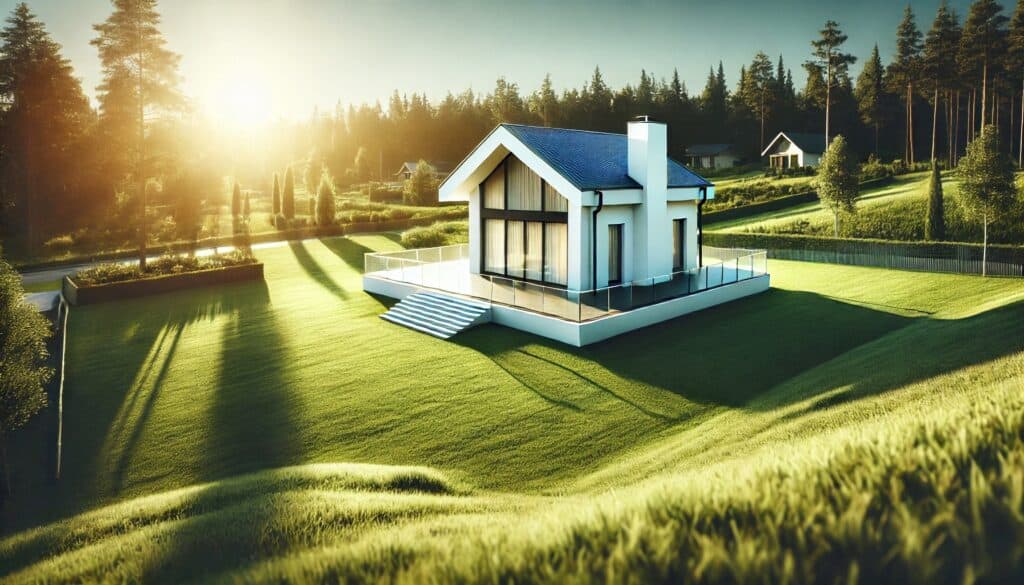
Is investing in off-grid properties right for you?
Before deciding to invest, it’s essential to evaluate your personal goals.
Are you seeking financial savings, environmental benefits, or a self-sufficient lifestyle?
Investing in off-grid properties requires a commitment to managing resources independently and adapting to a unique way of living.
Of course, the long-term rewards are substantial.
Reduced utility costs, energy independence, and the satisfaction of living sustainably make this investment worthwhile for many people.
Summary: Embracing a Sustainable and Profitable Future
The future of investing in off-grid properties is promising.
They offer a blend of sustainability, independence, and profitability.
Demand for off-grid properties will likely grow as more people prioritize eco-friendly living and self-sufficiency.
Hence, investing in these properties supports personal financial goals and contributes to a greener, more sustainable future.



















